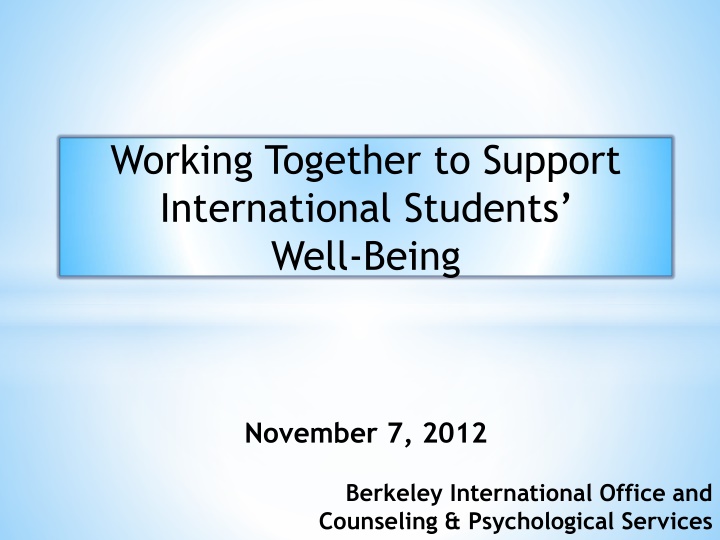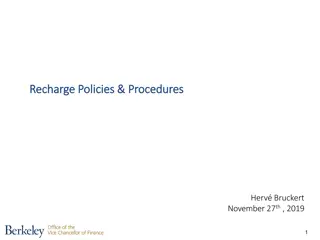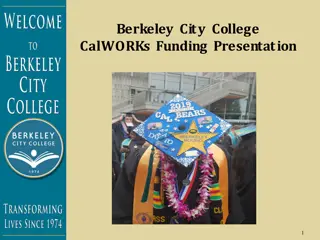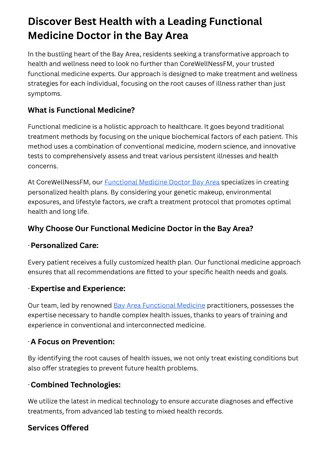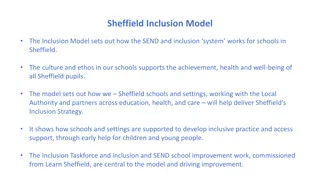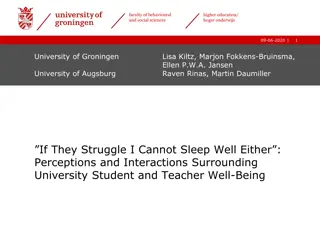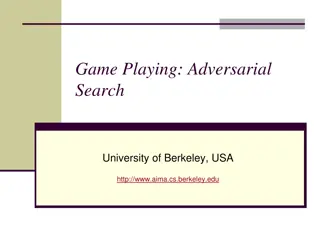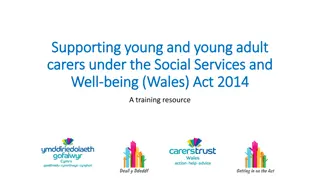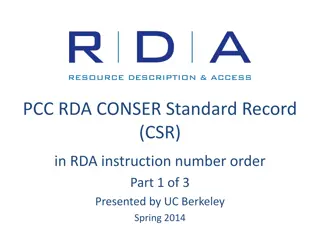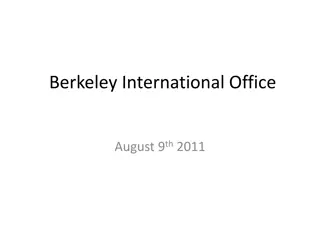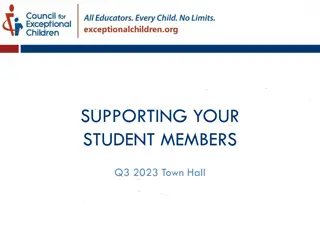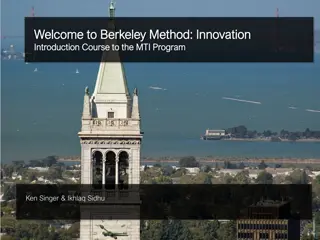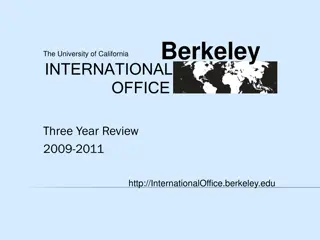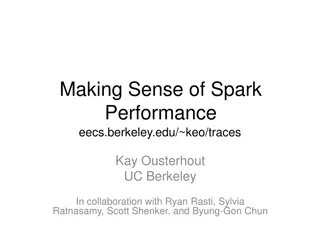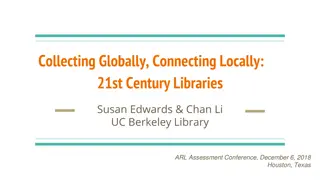Supporting International Student Well-Being at Berkeley
This event focuses on challenges faced by advisors and international students, cultural differences, mental health services, and skills for referral. It includes information on UC Berkeley's international student population, enrollment trends, and top fields of study.
Download Presentation

Please find below an Image/Link to download the presentation.
The content on the website is provided AS IS for your information and personal use only. It may not be sold, licensed, or shared on other websites without obtaining consent from the author.If you encounter any issues during the download, it is possible that the publisher has removed the file from their server.
You are allowed to download the files provided on this website for personal or commercial use, subject to the condition that they are used lawfully. All files are the property of their respective owners.
The content on the website is provided AS IS for your information and personal use only. It may not be sold, licensed, or shared on other websites without obtaining consent from the author.
E N D
Presentation Transcript
Working Together to Support International Students Well-Being November 7, 2012 Berkeley International Office and Counseling & Psychological Services
*Outcomes *International Student Population *Advising Challenges *Student Concerns *Cultural & Educational Differences *Challenges Accessing Mental Health Services *Case Studies *Resources *Today s Agenda
1. Explore the challenges advisors face when working with international students *Understand the key challenges faced by international students *Enhance awareness of educational and cultural differences *Discuss how these differences impact advising sessions and service delivery 2. Discuss Skills & Strategies for Referral with Campus Partners 3. Strategies for Self-Care *Outcomes
*UC Berkeley currently hosts 4,926 international students (not including students at Summer Session or UC Extension). *In Fall 2012, 1,878 students began a new program of study. *57.84 % of all students are undergraduate level. *42.16 % of all students are graduate level. *Quick Facts
* INTERNATIONAL STUDENT ENROLLMENT 2003-2012
*Fields of Study Top Graduate Programs of Study Top Undergraduate Programs of Study Rank Major Total Rank Major Total Business Administration (M & PhD) Law-LLM (M) Electrical Engineering & Computer Sciences (PhD) Mechanical Engineering (PhD) Computer Science (PhD) 1 175/38 Undeclared: College of Letters & Science 1 1108 2 3 143 2 Economics Electrical Engineering & Computer Sciences 157 135 3 147 124 4 4 Statistics 94 5 Chemical Engineering 83 94 5 6 Business Administration 70 Business Administration: Eve & Weekend (M) Civil & Environmental Engineering (PhD & M) Economics (PhD) Physics (PhD) Chemistry (PhD) 6 77 7 Applied Mathematics 61 Mechanical Engineering 61 7 76/42 9 Architecture 53 8 9 10 62 61 52 10 Civil Engineering 46
*Advising challenges *Talk to your neighbors about advising challenges that you face when working with international students.
*US & Campus culture shock *Language barrier *Taking on too much, rushing to finish *Isolation *Cultural issues- hierarchy, shame in asking for assistance, privacy *Academic differences & expectations *Financial issues *Pressure from home/family *Limited options when in academic difficulty *Visa/immigration Concerns *Advising Challenges Brainstorm Nov 2011
Social & Cultural *School/life balance *Communication & Cultural Differences *Friendships with Americans *Understanding spoken American English Personal *Finances/Financial support *On-campus employment *Post-graduation employment *Housing Academic *Keeping up with reading, writing assignments *Discussion participation *Difficulty participating in study groups, group work *Relating to US classmates *Undergrad Concerns
Personal *Finances/Financial Support *Departmental funding/support *Post-graduation employment *Housing *Understanding US medical insurance & services *U.S taxes *School/life balance Social & Cultural *Communication & cultural difference *Understanding spoken American English *Friendships with Americans *Understanding American values *Graduate Personal, Social & Cultural Concerns
Thinking Critically............Rote Memorization Interactive Classroom ... ......... ..Lecture Style Self-selected classes ... ..Pre-established classes Citing ............................................... ...Copying Competition ............................... ...Cooperation Direct Communication ... .. Indirect Communication Focus on Originality ......... ..Focus on Tradition Focus on Individual ............. ..Focus on Community *Continuum of Educational & Cultural Differences
*Challenges Accessing Mental Health Resources
International students may not realize that they need help for emotional or mental health problems. In general, very few international students receive counseling or therapy from a professional *Seeking Help
*Note that many international students may not seek support from anyone Top Sources of Support 1 Friend 2 Family Member 3 Roommate 4 Significant Other 5 Religious Counselor *Seeking Support
*No recognition of need *Prefer to deal with issues on their own *Perception that stress is normal at the university *Support from other non-clinical sources *Don t perceive needs as serious *Lack of time *Think problem will correct itself *Question whether therapy is helpful *Worry about what others will think *Privacy concerns *Main Barriers to Seeking Mental Health Services
*An Interesting Phenomenon about Asian International Students who Struggle with Depression
* Mental Health Service Utilization by Depression Severity and Student Type 1 0 Low High International Service Utilization -1 Domestic -2 -3 -4 -5 Depression Severity
* Mental Health Service Utilization by Depression Severity and Race 3 2 1 Service Utilization 0 Asian Low High White -1 Black -2 Hispanic -3 Native American -4 -5 -6 Depression Severity
*Due to the barriers/stigmas associated with seeking help regarding mental health issues for international students, academic advisors often become the 1st and sometimes only point of contact where there is an emotional/mental health crisis
*Key Points about Making Referrals: *Counseling is NOT mandatory, on the other hand, it is important to inform the student and make referrals as needed
*Respect privacy but do not guarantee confidentiality *Listen attentively, express concerns about the overall well- being *Discuss,as needed, the potential implication on academic status *Provide referralinformation and resources *Try to get others involved: friends/family/mentor/advisor as necessary *Consult with CPS staff/coworkers/supervisors as needed *Consult with BIO advisors as needed to understand signs or access other services
*If its an urgent situation: Call police (911) or use crisis services. *Tang Center is open from 10am-5pm, Monday-Friday for walk- in counseling.
*A 20 year old Chinese female student in her 2nd semester at Cal. *Intends to pursue Business major. She really wanted to study Art History, but parents expect her to study Business. *Comes to your office after being cited for plagiarism by a professor. *States that she has been experiencing stomach issues which put her behind in course work. *Case Study: Lisa
*What are your initial reactions? What do you think is going on for Lisa? *What further information would you like to obtain about Lisa? *Are there assumptions that you may be making about Lisa as she sits with you in the office? *Where are the boundaries in what you can do in your role? *What are the resources for Lisa and how can you connect her to them? *What if Lisa seemed shy about speaking to you in English? *What if Lisa told you * She lives alone, has few friends *Questions
*Case of Jose *25-year old married male senior transfer international student from Chile, majoring in Psychology *Walked in for dropping classes past the deadline *He is currently on academic probation (GPA dropped from 3.0 to 1.5 due to failing of 3 classes last semester). He has missed more than 50% of his classes this semester. *Started crying 5 minutes into the conversation, saying I am not sure how long will I be able to make it and nobody cares about me *When asked later, stated that his father passed away recently in a car accident back at home and his wife filed for divorce about 2 months ago.
*What stands out about the case? What are some of your concerns about the student? *How do you make referrals? *What if the student is resistant towards the idea of counseling? *Questions
*Recognize and accept limitations * Consult and refer to professional counselor whenever appropriate * Set appropriate boundaries *You are not alone! Seek social support from coworkers/supervisors *Self-care: regular eating/sleeping schedule, exercise, interpersonal relationships, hobby/interests, relaxation, etc. *Self-Care: Preventing burnout
*Counseling and Psychological Services www.uhs.berkeley.edu/students/counseling *Counseling for students *Brief individual and couples counseling *Drop-in counseling for urgent concerns *Groups *Career counseling and assessments *Psychiatric services *Consultation and Outreach Services *Workshops for students and student groups *Training for faculty and staff *Phone consultation about students of concern *Support after campus deaths or traumatic events
*BIO Services & Support Programs *Individual Daily Drop-Ins & Appointments *Academic & Personal Adjustment *Financial Issues *Campus Policies *Visa Related Matters *Employment Benefits *Fall & Spring Orientations *Workshops & Webinars: Financial aid, academic success, career exploration, personal success *http://Internationaloffice.berkeley.edu
